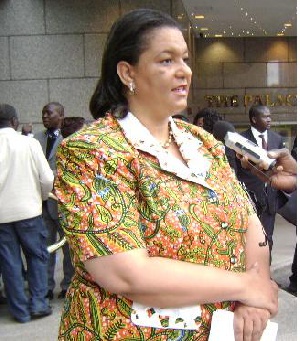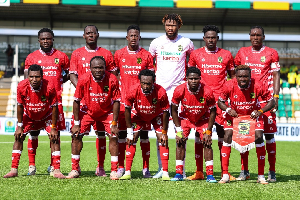Mr. Villy Sovndal, Danish Minister of Foreign Affairs, on Wednesday asked Ghanaians to sustain democratic rule which has brought so much credibility to the country.
He said, "The rest of the world is looking up to Ghana as a shining example of a successful democracy. It would be ideal if Ghana live up to her attained level of credibility."
Mr. Sovndal made the call during a discussion on Ghana's transformation into a middle income country, in Accra.
It was organised by the Institute of Economic Affairs (IEA) and attended by a Danish Business delegation.
Mr. Sovndal said Africa was going through rapid development, especially in economic activities, and Ghana was at the fore-front of this development.
He said Ghana was known as one of the most politically stable countries "Which is important because economic development goes hand in hand with political stability.
"The big question is, what can we do to maintain this political stability?”
Ms Hannah Tetteh, Minister of Trade and Industry, said for the local market to thrive in a vibrant business climate, "We need to know what makes us competitive."
She said no matter what was done to boost the local industry, "If we do not get competitive, we would find it difficult to thrive".
The Sector Minister mentioned good policy legislation, investing into infrastructure as well as having good human resource base as some of the basic requirements that ensured that the local market was competitive.
Ms Tetteh urged the Ghanaian business community to take advantage of government initiatives designed to assist local businesses, such as tax incentives and available funds such as those under the Millennium Development Assistance Programme.
She said it was crucial that the country dealt with land tenure problems which typically came up whenever land was needed for economic purposes.
"We have not dealt with our land tenure problems effectively as a country. There is the need for us to have a laid down procedure that would deal with land tenure," she said.
Ms Tetteh said there was the need for civil society to endeavour to talk with government, "In order for us to find solutions to some of the problems that we commonly share".**
Politics of Wednesday, 6 June 2012
Source: GNA













